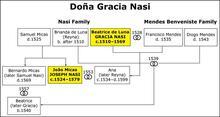Abigail Minis
Abigail Minis ran multiple successful businesses while supplying rebel troops during the American Revolution. Minis and her family were among the first Jewish settlers to arrive in Savannah in 1733. She ran a large plantation and owned property across four counties. She supplied the local Georgia militia and French forces to fight British rule, but when Savannah fell to the British in 1778, the British governor granted her and her family safe passage to Charleston and allowed her to keep her property. After the war, Minis returned to Savannah, running a tavern until 1779 and maintaining her vast holdings until her death.
Article
Born August 11, 1701, Abigail Minis was a businesswoman and landowner known for her support of the Revolutionary cause. With her husband and two young daughters, she was among the first group of approximately forty Jews who arrived in Savannah on July 11, 1733, some six months after the founding of the colony of Georgia by James Oglethorpe. Between 1733 and 1757, she gave birth to seven more children, one of whom died in infancy. Widowed at age fifty-six, with eight children to support, Minis went on to build a small fortune in land.
Although she never learned to speak English well and could barely sign her name, Minis possessed a sharp business acumen. At the time of her death, she owned real property in four Georgia counties, as well as sheep, cattle, and a sufficient number of slaves to run her large plantation. In addition, Minis was well known in Savannah for her hospitality. In 1763, she applied for a license to operate a tavern. She and her five unmarried daughters conducted this business until 1779. The Minis tavern became the site of “elegant entertainments” for members of the colony’s elite, including members of the Georgia assembly, judges, the governor’s council, wealthy merchants, and other distinguished citizens.
Minis was widely known as a supporter of the Revolutionary cause, and helped supply provisions for the Continental line, Georgia militia, and French forces in the area. Attempts were made by Loyalists to confiscate her property after Savannah fell to the British in December 1778. However, Minis and her daughters successfully petitioned the governor for safe passage to Charleston and protection of their Savannah property for the remainder of the war. In 1783, Abigail Minis returned to Savannah and resumed her business activities, remaining active in the various enterprises owned by the family until her death on October 11, 1794, at age ninety-three.
BDEAJ; Kole, Kaye. The Minis Family of Georgia, 1733–1992 (1992).
Levy, B.H. Savannah’s Old Jewish Community Cemeteries (1983).
Marcus, Jacob Rader. The American Jewish Woman: A Documentary History (1981), and Early American Jewry. Vol. 2 (1953).
Stern, Malcolm H. “The Sheftall Diaries: Vital Records of Savannah Jewry, 1733–1808.” AJHQ 54, no. 3 (March 1965): 242–277.





